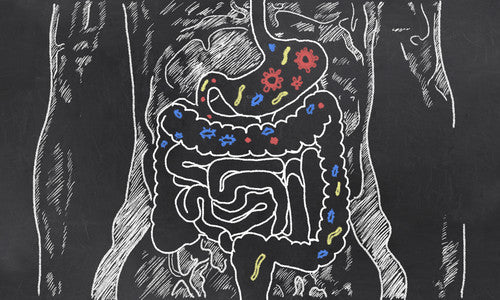Friendly bacteria is a term used frequently, particularly on yoghurt pots in the supermarkets! And, it can also be slightly confusing, bearing in mind that bacteria are usually associated with disease and illness. However, these bacteria are certainly very friendly to health!
Therefore, Clinical Nutritionist, Suzie Sawyer gives us the ‘low-down’ on what they are and what they do!
Friendly bacteria is just another expression for the correct name being ‘probiotics’. Unfortunately, European law has prevented the word ‘probiotic’ being used when referring to any product containing them. However, it doesn’t mean they are any less beneficial to our health; essentially these are live micro-organisms that live in the digestive tract, that when present in adequate amounts are beneficial to our health. Indeed, to be termed a probiotic, an organism must be ‘live’, beneficial to health and safe.
To put it into some context, there are around 400 different microbial species that live in the digestive tract and more are being found all the time. Interestingly, we do know that at any one time, the friendly bacteria happily living in our bodies, weigh around six pounds in total!
The community of friendly bacteria are established in the gut within the first few weeks of life. The most common species, Lactobacilli and Bifidobacterium, are more prevalent in breast-fed babies, but the gut flora changes when a baby is weaned and then adult flora develops, although these continue to be the most common strains. Hence, when looking for a probiotic supplement, it’s always best to search out ones that contain the ‘resident’ strains, as these tend to be the most beneficial to health.
What do they do?
Friendly bacteria provide a wealth of benefits to our health, including:-
- Helping the body to detoxify
- Aiding digestion, enhancing absorption of nutrients and supporting the immune system.
- Helping to combat digestive issues such as bloating, flatulence, constipation and diarrhoea; often these symptoms are caused by imbalanced friendly bacteria.
- They help to produce certain vitamins, specifically the B vitamins and vitamin K
- They produce the lactase enzyme which digests lactose found in dairy foods
- They promote urinary and genital health, as well as digestive health
Interestingly, the resident strains are not always the ones found in yoghurts, plus they don’t always survive the stomach acid when they’re eaten. Therefore, it’s always wise to take a supplement containing some friendly bacteria at least once a year, because they are so valuable to overall health. Additionally, if you’ve had a course of antibiotics, you will certainly need to take a supplement afterwards as these destroy the friendly bacteria, thereby allowing some of the bad bacteria to flourish, specifically causing digestive issues.
So, you can see they’re termed ‘friendly’ for very good reason!

